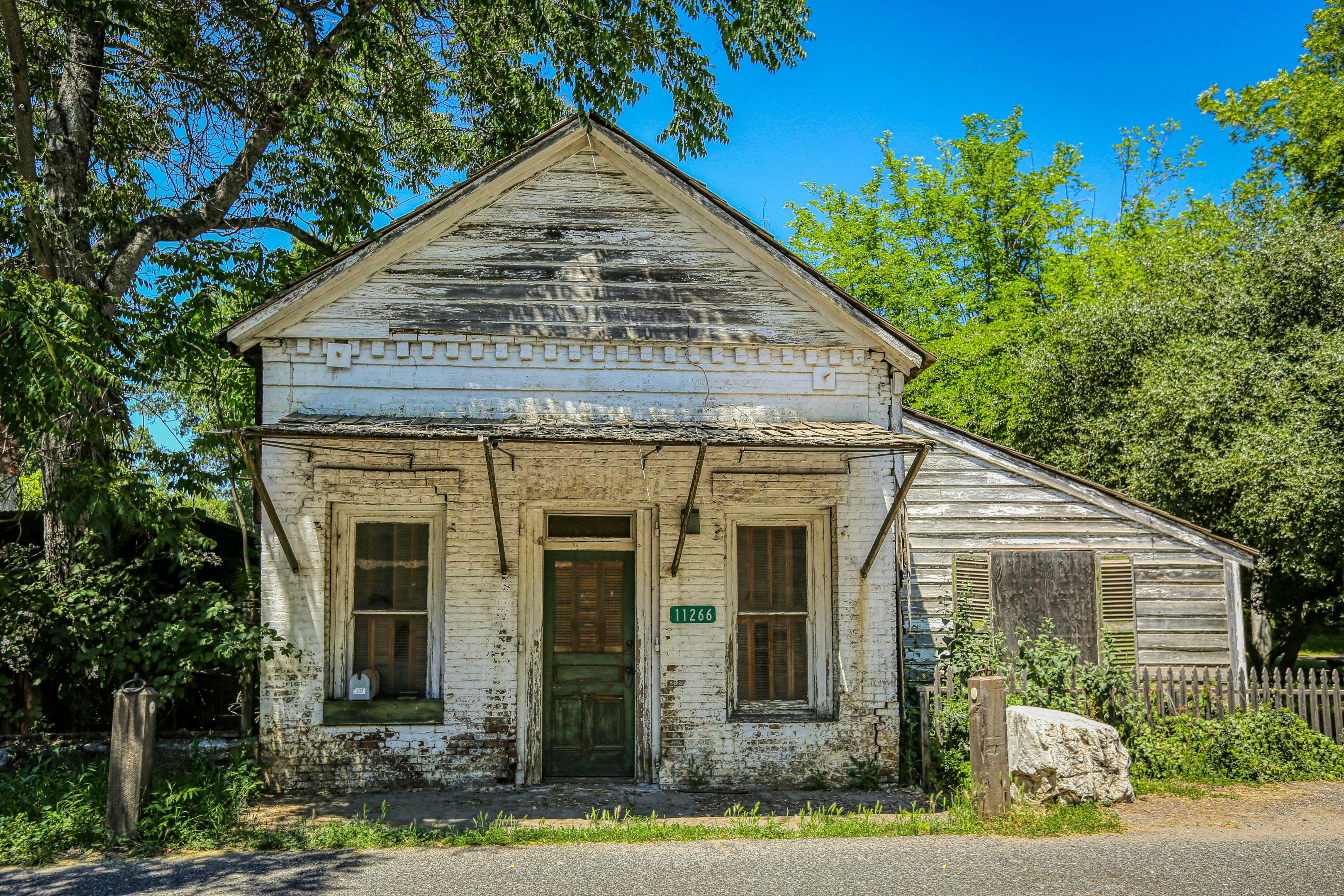Tips for Buying Probate Property in Florida
Buying probate property in Florida involves navigating legal processes and court approvals. This guide will walk you through each step, from finding probate properties to making an offer, securing financing, and understanding legal requirements. You'll learn what to expect and how to overcome challenges in this unique real estate market.
Key Takeaways
Understanding the Florida probate sale process, including the role of the personal representative and the necessity of court approval, is essential for buyers.
Key steps for purchasing probate real estate include identifying properties, securing financing (preferably cash), and submitting offers for court approval.
Engaging professionals such as probate attorneys and real estate agents experienced in probate sales can significantly ease the complexities and challenges associated with buying probate properties.

Understanding Probate Sales in Florida
The probate sale process starts with the appointment of a personal representative, either named in the will or appointed by the court. This representative inventories the decedent's assets and determines if selling the property is necessary to settle debts or distribute the deceased person's estate fairly.
The probate court ensures fairness and legality throughout the process, including reviewing offers to benefit the beneficiaries. If the personal representative opts to sell the property, court approval is required before proceeding. This oversight guarantees fair distribution of the estate's value and compliance with legal requirements, especially during the probate court hearing.
Probate sales often take more time than standard real estate transactions due to the necessity for court approvals and the complexities involved in managing estates.However, if investors are able to purchase the property before it officially enters probate, these delays can often be avoided. Engaging professionals like a probate attorney or a real estate agent experienced in probate sales can be invaluable.
Recognizing the legal process and procedural steps in the Florida probate process is essential for anyone looking to buy probate real estate. This knowledge helps navigate challenges and ensures compliance with legal requirements. To gain more knowledge about investing in real estate that is going through probate, read The Essential Guide to Investing in Probate Real Estate.
Key Steps for Buying Probate Real Estate
Buying probate real estate in Florida involves several key steps for a successful transaction. First, identifying probate properties through public records, online listings, and specialized real estate agents is crucial.
After identifying a potential property, securing financing is the next critical step for a property owner. Probate courts often prefer cash offers to avoid delays, but a pre-approved loan can also enhance your chances in competitive scenarios.
Making an offer involves submitting a bid to the probate court and awaiting their approval. Each of these steps is integral to navigating the probate sale process effectively.
Identifying Probate Properties
Finding probate properties opens the door to unique purchasing opportunities. Effective methods include buying probate property, checking local newspapers or online real estate listings specifically to find probate properties for probate sales, which often list properties from a deceased person's estate.
A great way to access these leads is by using USLeadList, the primary resource for investors looking for probate leads in Florida. Their leads are sold by county and only to a maximum of three investors per county, ensuring low levels of competition. Check our the website today to get a quote for leads in your area.
Real estate agents specializing in probate sales and probate attorneys are more valuable resources. They have access to probate court listings and can help find properties that meet your criteria. Working with these experienced professionals streamlines the process and increases your chances of finding a suitable property.
Identifying probate properties provides access to potential bargains and a variety of real estate options. Whether seeking a primary residence, rental property, or investment opportunity, probate properties can offer significant value.
Securing Financing
Securing financing is crucial in buying probate properties. Many probate courts prefer cash offers as they streamline the sale process and eliminate financing delays, making your bid more attractive and increasing your chances of a successful purchase.
If cash is not an option, obtaining a pre-approved loan can be beneficial. Pre-approval demonstrates financial readiness and helps you compete with other buyers.
Having your funds ready, whether through cash or financing, is essential for navigating the probate sale process. Since sellers are often highly motivated, they are willing to sell below market value in many probate cases, which sets investors up for a successful, profitable deal.

Making an Offer
Once you find a probate property of interest, the next step is to make an offer by submitting a bid to the probate court. The court evaluates bids to ensure they meet legal requirements and serve the estate's best interest.
Court approval is critical, ensuring the sale is fair and legally compliant before proceeding. This step can add time to the process but protects the interests of all parties involved.
Understanding the importance of court approval and the legal requirements for making an offer helps navigate this step more effectively. With proper preparation and professional guidance, you can make a successful bid and move forward confidently.
Legal Considerations in the Probate Process
Navigating Florida's probate process is paramount for any prospective buyer. The probate court oversees the sale and ensures all transactions are legally compliant, including appointing the executor or personal representative authorized to manage the estate's transactions.
Obtaining court approval for the sale is a significant legal requirement, ensuring fairness and protecting beneficiaries' interests. Potential buyers should be prepared for a slower process compared to traditional real estate transactions due to the need for court approvals.
Having necessary documents like the title and death certificate ready can expedite the process. Ensuring all beneficiaries agree on the sale terms is crucial to avoid legal disputes and delays. Engaging a probate attorney can streamline these legal considerations and facilitate a smoother transaction. For a list of reliable probate attorneys in Florida, go to Justia.

The Role of Real Estate Agents and Attorneys
The intricate nature of probate sales necessitates experienced professionals. Hiring a probate attorney and a real estate agent specializing in probate sales is crucial for navigating the process's complexities. These professionals guide you through legal requirements and ensure compliance with all necessary regulations.
Certified Probate Real Estate Specialists (CPRES) are particularly beneficial, trained to handle the unique challenges of probate property sales. Engaging such specialists can significantly ease the process of discovering available properties and managing the sale.
Real estate agents play a vital role in preparing the property for sale and ensuring it meets all probate-specific regulations. Their expertise prevents delays and maximizes the estate's financial benefit. Additionally, these agents help overcome legal hurdles and explain the probate court process, making the journey smoother for potential buyers.
Working with a real estate agent specializing in probate sales can accelerate the home sale process and ensure all legal requirements are met. Similarly, hiring a probate attorney is beneficial for their understanding of the probate sale process and court representation. The combined expertise of these professionals can make the difference between a challenging experience and a successful purchase.
Potential Challenges and How to Overcome Them
Buying probate properties comes with challenges, but they can be overcome with the right strategies. One primary challenge is the length of the probate sale process, which can extend for months due to court involvement and potential objections from beneficiaries. Patience and persistence are key to navigating these potential delays.
Flexibility in negotiations is often limited in probate sales, making it difficult to reach favorable agreements. Understanding this limitation and being prepared to make competitive bids can help mitigate this challenge. Buyers may also face high ancillary costs, such as attorney fees, filing costs, and appraisal expenses. Budgeting for these costs in advance can prevent financial surprises.
Another significant challenge is that probate properties are sold without contingencies, meaning repairs or upgrades are not required before the sale. Buyers must be prepared to address any undisclosed issues themselves. This situation is often ideal for investors who are interested in fixing and flipping properties. Scheduling a thorough home inspection before finalizing the purchase can uncover potential problems and inform your decision-making process.

Benefits and Risks of Buying Probate Properties
The allure of buying probate properties lies in potential benefits, such as acquiring real estate at below-market prices. These properties often sell for less than their true market value, providing an opportunity for significant savings. Investing in renovated probate homes can also yield substantial profits, making them attractive for investors.
However, these benefits come with inherent risks. Probate properties are typically sold in ‘as-is' condition, meaning no repairs or upgrades can be requested by the buyer. This can result in unexpected expenses if there are undisclosed issues with the property. Buyers must be ready to accept these risks and budget for potential repairs. As an investor, its important to go into each transaction knowing whether or not the property will be sold as is, so that a proper budget can be advocated.
Understanding the balance between benefits and risks is crucial for making an informed decision. While the potential for lower costs and profitable investments is enticing, it's essential to be aware of the challenges and prepare accordingly. With the right approach, buying probate properties can be a rewarding venture.
To see even more examples of the pros and cons of investing in probate properties, see Pros and Cons of Real Estate Investing: A Comprehensive Guide
Tips for a Successful Probate Property Purchase
For a successful probate property purchase, several practical tips can make a significant difference. Scheduling a home inspection is one of the most important steps, as it helps uncover potential issues that may not be immediately apparent. This detailed review can inform your decision-making and prevent costly surprises.
Ensuring the property is well-maintained can also prevent delays during negotiations. A well-maintained property is more likely to attract favorable bids and streamline the sale process. Additionally, understanding the probate court process and having all necessary documents ready can expedite the transaction and reduce complications.
Working with experienced professionals, such as a probate attorney, provides valuable guidance and support. These experts help navigate the legal and procedural complexities, ensuring a smoother and more successful purchase. To find a quality probate attorney in your area, see this list from Justia.

Summary
Buying probate properties in Florida offers unique opportunities and potential benefits for savvy buyers. Understanding the probate process, securing financing, and making informed offers are crucial steps for success. The involvement of experienced professionals, such as probate attorneys and specialized real estate agents, can significantly ease the journey.
While there are challenges and risks associated with buying probate properties, the potential rewards make it a worthwhile endeavor. With thorough preparation, patience, and the right guidance, you can turn the complexities of probate sales into profitable opportunities. Embrace the process, and you might find yourself with a valuable addition to your real estate portfolio.
Frequently Asked Questions
How can I find probate properties for sale in Florida?
To find probate properties for sale in Florida, consult local newspapers, search online real estate listings, and collaborate with real estate agents specializing in probate sales. This approach will enhance your chances of locating suitable properties.
Why do probate courts prefer cash offers?
Probate courts favor cash offers as they expedite the sale process and reduce the potential for financing setbacks, ensuring a more efficient and uncomplicated transaction.
What are the legal requirements for buying a probate property?
To purchase a probate property, it is essential to secure court approval for the sale, prepare all required documentation, and ensure consensus among beneficiaries regarding the sale terms to prevent conflicts.
What are the potential risks of buying probate properties?
Purchasing probate properties carries the potential risk of acquiring them in 'as-is' condition, leading to undisclosed issues, alongside the possibility of incurring significant ancillary costs, including attorney fees and appraisal expenses. It is essential to conduct thorough due diligence to mitigate these risks.
How can a real estate agent help in buying probate properties?
A real estate agent specializing in probate properties can effectively assist you by identifying suitable options, navigating legal complexities, and ensuring compliance with probate regulations. Their expertise streamlines the buying process, making it more manageable for you.